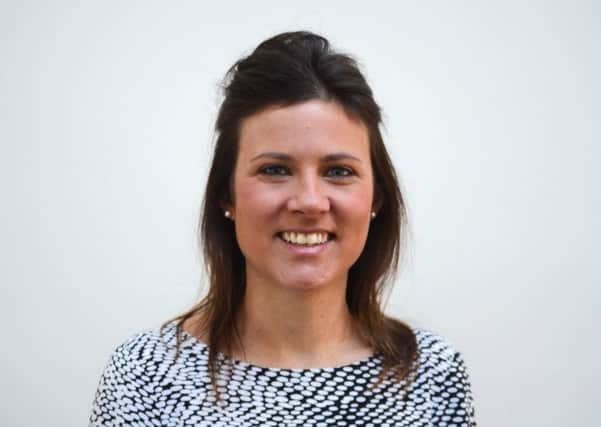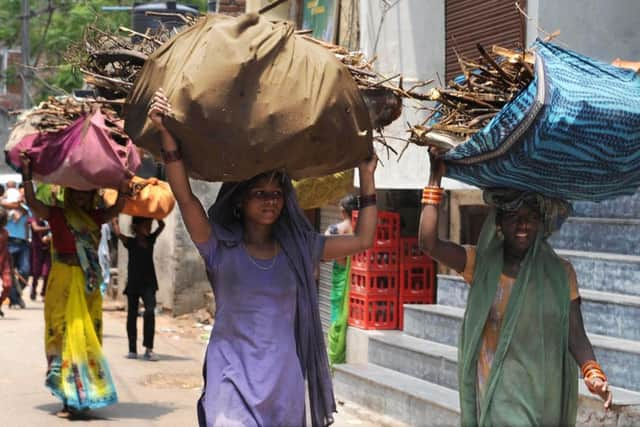To beat poverty we need equality


The greatest, most pervasive inequality in the world is that between women and men. We hear daily of stories reflecting the challenging and often dangerous experiences women face because of their gender – both in Scotland and throughout the world. Women perform 66 per cent of the world’s work yet earn only 10 per cent of the income. One in three women will experience physical or sexual violence, most likely by an intimate partner. Fewer than 20 per cent of the world’s parliamentarians are female.
While women clearly bear the brunt of gender inequality in terms of violence, oppression and representation, the expectations we’ve attached to narrow versions of being male and female impact men too. Pressures to take responsibility for financial provision have been linked to increased male violence and high suicide rates, and traditional gender stereotypes can affect the ability of men to assume caring responsibilities, something that is further reinforced through poor paternity arrangements. The reality is that we are all impacted by gender inequality.
Advertisement
Hide AdAdvertisement
Hide AdCloser to home we cannot, and should not, be complacent. In the UK we see gender inequality manifested in the scandalous under-representation of women in public life, and in chilling statistics of violence: around 90,000 women are raped each year in the UK alone, and two women a week in the UK are murdered by their partner or ex-partner. Pieced together these stories form a web of haunting voices that underpin the notion of gender inequality as the greatest human rights scandal of our time.


Gender justice promotes the idea that a flourishing society – where the rights to social, economic and political capital are available to all – is not a place where people are limited by their gender, or the degree to which they conform to traditional notions of masculinity or femininity. It may sound like an ambitious vision, but groups of women and men are mobilising across the world to do what they can to make it a reality.
One such group is Side by Side, a growing movement of people who want to see gender justice in action. Set up by Christian Aid in 2015, it draws together faith communities in countries across the world, working to meet local challenges in bringing about justice and equality for all. At its heart is a deep desire to create a different world; a world without poverty and injustice, where everyone has what they need to live life in all its fullness. The reality is that globally we cannot stamp out poverty until we address this fundamental inequality.
Faith communities have historically been seen as places where gendered expectations are tied to practices and traditions that lead to women being absent, ignored or oppressed. Christian Aid in Scotland is working with a number of churches to identify transformational spaces for people to talk about their own experiences of gender injustice, and hear the stories of women and men across the world who, for the same reasons, cannot experience life in all its fullness.
United by a belief that gender should be seen as a source of life and hope rather than oppression or fear, Side by Side aims to support faith communities in three key ways.


Firstly, a priority is to ensure that men and boys are fully engaged in the transformations required to bring about gender justice. As just and equal gender relationships are created men must be part of the solution, and have a key role to play as advocates of change.
Secondly, a focus must be on recognising that young people are at the forefront of defining and living gender in increasingly fluid ways, and they can bring enormous vitality and innovation to their roles as leaders in this work.
Finally, it’s well documented that the most transformational work is often carried out at a local level, and it’s essential that grassroots groups have the support they need to build a movement for gender justice.
Advertisement
Hide AdAdvertisement
Hide AdFriday, 25 November is International Day for the Elimination of Violence against Women, and also marks the start of the 16 Days of Activism Against Gender Violence global campaign. This is a timely reminder of the responsibility that faith communities hold to not only make explicit and challenge gender inequality, but also to play their part in galvanising action to promote gender justice throughout the world. Only then can Christian Aid’s vision of a world free from poverty be realised.
Fiona Buchanan, Youth Development Officer with Christian Aid Scotland